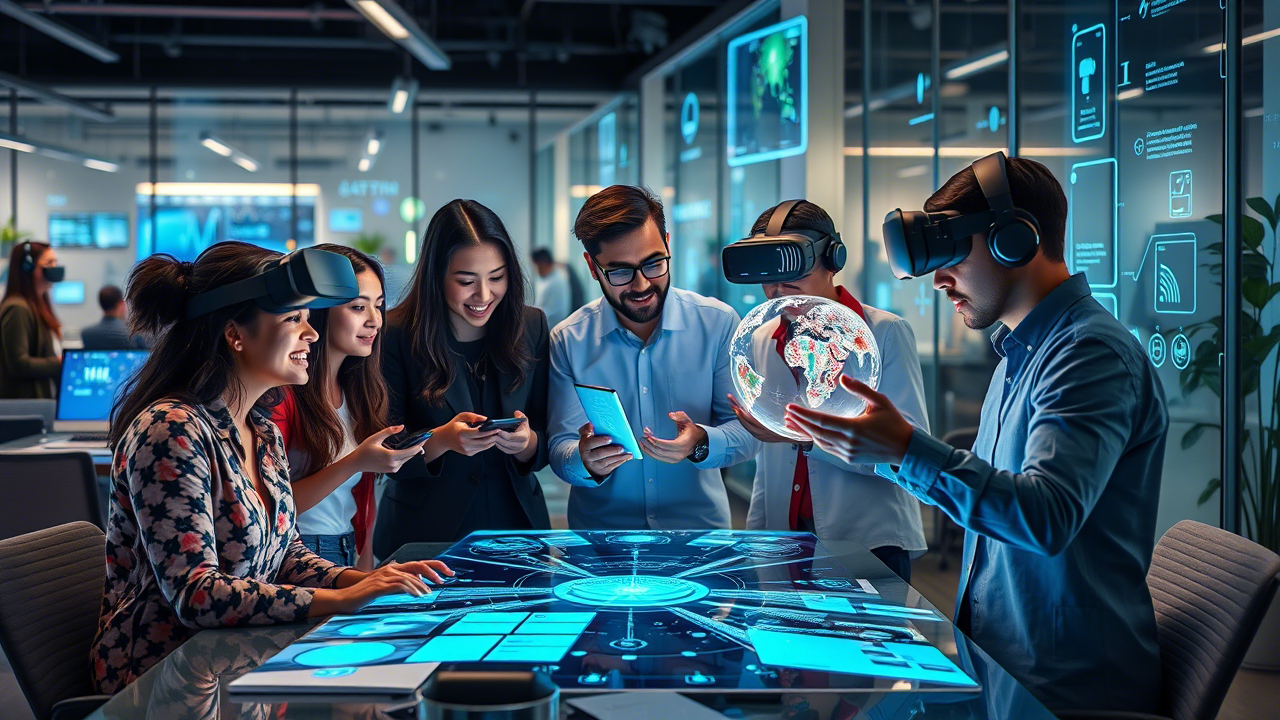In today’s rapidly evolving digital landscape, companies and industries are witnessing a convergence of transformative trends that are reshaping how they operate and interact with the world. From the pervasive influence of generative AI to the indispensable role of interpersonal skills, the integration of sustainable business practices, the strategic implementation of large-scale personalization, and the growing data economy—these elements are not isolated phenomena but interconnected forces driving the future of innovation and growth.
The Impact of Generative AI
Generative AI stands at the forefront, representing a paradigm shift where AI-generated content and solutions seamlessly integrate into creative and technical processes across multiple sectors. In the automotive industry, for instance, generative design algorithms are being used to create lightweight yet durable components, resulting in more fuel-efficient vehicles. In media production, AI tools such as OpenAI’s GPT models assist in scriptwriting and content creation, accelerating production timelines and enhancing creativity.
Case Study: Media Production
A leading media company adopted generative AI tools to optimize its content creation process. With this implementation, it reduced production time by 30%, enabling the creation of more material without compromising quality. This change not only increased audience engagement but also opened new revenue streams through personalized content offerings.
As organizations embrace digital transformation, the adoption of generative AI tools has become essential, enabling greater efficiency and customized customer experiences. This technology is revolutionizing industries from automotive design to media production, setting a new standard for creativity and productivity.
The Human Touch: The Importance of Soft Skills
However, as technology advances, the human touch remains irreplaceable. The value of interpersonal skills—such as emotional intelligence and empathy—is vital to maintaining meaningful connections in a tech-driven world. These competencies bridge the gap between digital solutions and personal engagement, ensuring that personalization efforts resonate on a human level.
Practical Example: Customer Service
In customer service, companies that invest in soft skills training for their employees observe higher satisfaction rates. For example, a global retail chain implemented a training program focused on empathy and communication, resulting in a 15% increase in satisfaction scores and a significant reduction in complaints.
Organizations that balance technological innovation with interpersonal skills are better positioned to create harmonious interactions that elevate customer satisfaction and loyalty.
Sustainable Business Practices: A Necessity
Sustainable business solutions are no longer optional—they’re essential. The integration of AI-driven sustainability practices allows companies to optimize resources and reduce environmental impact. By leveraging AI, businesses can manage energy consumption, optimize supply chains, and foster circular economy models.
Data Insight: Sustainability in Retail
Studies show that companies adopting sustainable practices see a 20% improvement in brand reputation. A notable example is a multibillion-dollar retail corporation that used AI to optimize its supply chain logistics, resulting in a 10% reduction in carbon emissions. This commitment to sustainability not only benefits the environment but also strengthens brand reputation and operational efficiency.
Mass Personalization: Engaging the Crowd
Personalization at scale has emerged as a key strategy, empowering companies to deliver tailored experiences to large audiences. Through advanced data analytics, businesses can anticipate needs and provide relevant, timely content.
Strategy: Personalized Marketing Campaigns
A major e-commerce platform employed AI-based personalization techniques to segment its customer base and launch targeted marketing campaigns. This approach led to a 25% increase in conversion rates and strengthened consumer loyalty, demonstrating the power of personalization in driving growth.
The Data Economy: Fueling Innovation
At the heart of these trends lies the Data Economy, where information is a key asset for growth and innovation. Organizations are adopting data-intensive, insight-driven strategies to optimize operations, improve customer experiences, and anticipate market trends.
Example: Predictive Analytics
A leading logistics company used predictive analytics to optimize route planning, reducing delivery times by 15% and operational costs by 10%. This ability to effectively harness data enables companies to quickly adapt to market changes, maintaining competitiveness in the digital age.
The convergence of generative AI, soft skills, sustainable practices, personalization, and the data economy is shaping a new landscape for businesses. To explore these trends in depth and discover how they can drive your organization forward, explore the A.I.Pro infoproduct at [artificialintelligencepro – AI PRO]. This platform offers valuable insights and resources to help you navigate the complexities of today’s digital world and unlock new opportunities for success. By embracing these interconnected trends, businesses can not only thrive but also lead the next generation of innovation and growth.


